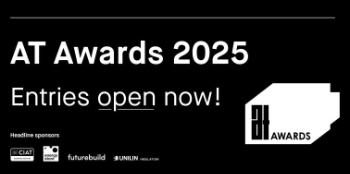Built Environment Professional Education BEPE
The Built Environment Professional Education (BEPE) project was launched on 3 December 2013, the International Day of Disabled People.
It was inspired by the Paralympic Legacy Advisory Group and was intended to build on the work showcased at the London 2012 Olympic and Paralympic Games, which was seen as an exemplar project for inclusive design.
Almost 20% of the UK population are disabled, around 12 million people, and the so-called disability ‘purple pound’ is worth £80 billion to the British economy.
The government defines inclusive design as ‘…a process that ensures that all buildings, places and spaces can be easily and comfortably accessed and used by everyone.’ Ref Gov.uk Policy paper 2010 to 2015 government policy: 2012 Olympic and Paralympic legacy.
The London 2012 Olympic Park included accessible routes, accessible public transport, a games mobility scheme, and the work of numerous volunteers. Analysis found that that 59% of disabled visitors were positive about overall access in London.
The BEPE project aims to ‘…make inclusive design a key part of education and training for all built environment professionals.’
Mark Harper, Minister of State for Disabled People in 2014 and 2015 said, “It will increase skills and knowledge in inclusive design and will produce architects, planners, surveyors and engineers of the future who will have the competence and desire to put accessibility and inclusion at the heart of their projects. This will help to make social and physical inclusion the norm in all development projects”
The BEPE is overseen by a Project Board chaired by ex-government Chief Construction Adviser Paul Morrell, and including senior figures from the built environment professions. It originally reported to the Department of Work and Pensions (DWP), but on 18 April 2016, it was announced that the Construction Industry Council (CIC) would take it over.
The Construction Industry Council (CIC) was established in 1988 to provide a forum for professional bodies, research organisations and specialist business associations in the construction industry. These member organisations give the CIC a ‘collective membership’ of 500,000 professionals.
CIC plans for the BEPE include a new Award of Awards for exceptional and inspired inclusive design in the built environment to be presented at the Construction Industry Summit Dinner.
CIC chairman Tony Burton said: “Inclusive design that creates truly accessible and inclusive built environments for everyone in society, including the disabled, the elderly and families with small children, has to be the industry’s ambition, and embedding inclusive design into built environment education is an important step towards that goal. Our efforts now will benefit generations to come and add value to our buildings, places and public spaces in the long term. Let industry make this its legacy.”
[edit] Find out more
[edit] Related articles on Designing Buildings Wiki
- Accessibility in the built environment.
- Access consultant.
- Access and inclusion in the built environment: policy and guidance.
- Accessible London.
- BIFM standard Managing Accessibility and Inclusion.
- Changing lifestyles.
- Chief Construction Adviser.
- Equality Act.
- Equal opportunities policy.
- Essential principles, Creating an accessible and inclusive environment.
- Inclusive design.
- Lifetime homes.
- Older people.
- People with disabilities.
Featured articles and news
The Architectural Technology Awards
The AT Awards 2025 are open for entries!
ECA Blueprint for Electrification
The 'mosaic of interconnected challenges' and how to deliver the UK’s Transition to Clean Power.
Grenfell Tower Principal Contractor Award notice
Tower repair and maintenance contractor announced as demolition contractor.
Passivhaus social homes benefit from heat pump service
Sixteen new homes designed and built to achieve Passivhaus constructed in Dumfries & Galloway.
CABE Publishes Results of 2025 Building Control Survey
Concern over lack of understanding of how roles have changed since the introduction of the BSA 2022.
British Architectural Sculpture 1851-1951
A rich heritage of decorative and figurative sculpture. Book review.
A programme to tackle the lack of diversity.
Independent Building Control review panel
Five members of the newly established, Grenfell Tower Inquiry recommended, panel appointed.
Welsh Recharging Electrical Skills Charter progresses
ECA progressing on the ‘asks’ of the Recharging Electrical Skills Charter at the Senedd in Wales.
A brief history from 1890s to 2020s.
CIOB and CORBON combine forces
To elevate professional standards in Nigeria’s construction industry.
Amendment to the GB Energy Bill welcomed by ECA
Move prevents nationally-owned energy company from investing in solar panels produced by modern slavery.
Gregor Harvie argues that AI is state-sanctioned theft of IP.
Heat pumps, vehicle chargers and heating appliances must be sold with smart functionality.
Experimental AI housing target help for councils
Experimental AI could help councils meet housing targets by digitising records.
New-style degrees set for reformed ARB accreditation
Following the ARB Tomorrow's Architects competency outcomes for Architects.
BSRIA Occupant Wellbeing survey BOW
Occupant satisfaction and wellbeing tool inc. physical environment, indoor facilities, functionality and accessibility.























